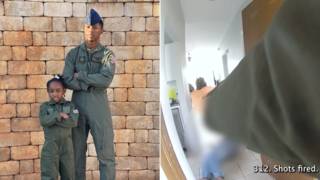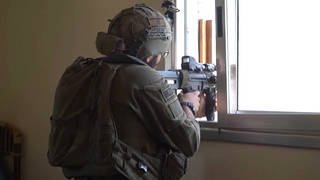Istanbul, May 17, 2024—The Committee to Protect Journalists on Friday called on Syrian authorities to release detained Syrian journalist Mahmoud Ibrahim immediately and to disclose his location and that of all imprisoned journalists.
On February 25, Syrian government forces arrested Ibrahim, an editor with Al-Thawra newspaper, which is published by the ruling Baath party, after he attended a court hearing at the Palace of Justice in the western coastal city of Tartus, according to news reports and the Beirut-based press freedom group SKeyes.
Earlier that day, Ibrahim said in a Facebook post that he was going to attend a first hearing on charges of supporting armed rebellion, violating the constitution, and undermining the prestige of the state. Ibrahim said that he was not guilty and continued to support the “peaceful movement” in the southwestern city of Sweida, where protesters have been calling for President Bashar al-Assad’s departure since August.
CPJ was unable to determine Ibrahim’s whereabouts or health status since his arrest.
The journalist’s family were worried about his health as he required medication for several conditions, the Syrian Network for Human Rights, a UK-based monitoring group, reported.
“CPJ is appalled that Syrian authorities have arrested yet another journalist for commenting on news events in their own country. Mahmoud Ibrahim should not be criminalized simply for expressing his opinion,” said CPJ Program Director Carlos Martinez de la Serna in New York. “Syrian authorities must inform Ibrahim’s family of his whereabouts, grant him access to medical care, and release him and all other journalists unfairly jailed for commenting on the government of President Bashar al-Assad.”
The Syrian Network for Human Rights said it believed Ibrahim was arrested under the 2022 Anti-Cybercrime Law. In an August 25 Facebook post, the journalist sent “peace and a thousand peace” from Tartus to Sweida, with heart emojis and photographs of city skylines.
The Sweida demonstrations were initially against inflation but shifted focus to criticize the government, including attacks on the offices of Assad’s Baath party.
In his February Facebook post, Ibrahim said that an unnamed journalist in Tartous had written a security report about him to the authorities, which led to the lawsuit being filed against him in September, as well as the termination of his job contract and a ban on his employment by government institutions.
Ibrahim also said that he had responded in December to a summons by the Tartus Criminal Security Branch, which was investigating him.
On January 1, Ibrahim said on Facebook that his employer had stopped paying his salary and the newspaper’s director did not give him an explanation.
CPJ’s email to Al-Thawra newspaper requesting comment did not receive any response.
CPJ’s email to Syria’s mission to the United Nations in New York requesting comment on Ebrahem’s case, whereabouts, and health did not receive any reply.
Syria held at least five journalists behind bars when CPJ conducted its most recent annual prison census, which documented those imprisoned as of December 1, 2023. CPJ was unable to determine where any of those journalists were being held or if they were alive.
This content originally appeared on Committee to Protect Journalists and was authored by Committee to Protect Journalists.
This post was originally published on Radio Free.
 *
* 












